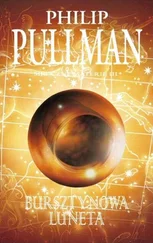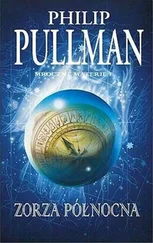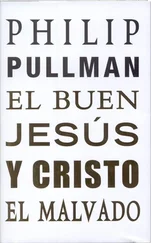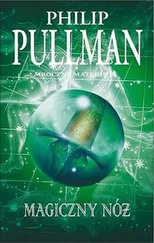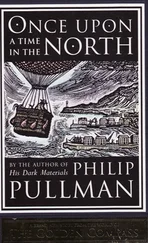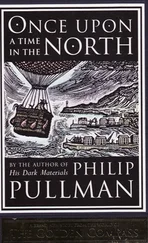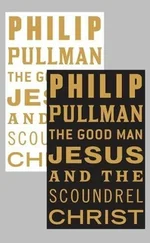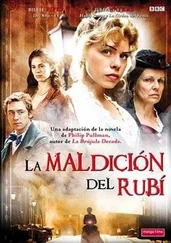«But unfortunately for the Magisterium there seem to be sound mathematical arguments for this other-world theory. I have never followed them myself, but the Cassington Scholar tells me that they are sound.»
«And now Lord Asriel has taken a picture of one of these other worlds,» the Librarian said. «And we have funded him to go and look for it. I see.»
«Quite. It'll seem to the Oblation Board, and to its powerful protectors, that Jordan College is a hotbed of support for heresy. And between the Consistorial Court and the Oblation Board, Charles, I have to keep a balance; and meanwhile the child is growing. They won't have forgotten her. Sooner or later she would have become involved, but she'll be drawn in now whether I want to protect her or not.»
«But how do you know that, for God's sake? The alethiometer again?»
«Yes. Lyra has a part to play in all this, and a major one. The irony is that she must do it all without realizing what she's doing. She can be helped, though, and if my plan with the Tokay had succeeded, she would have been safe for a little longer. I would have liked to spare her a journey to the North. I wish above all things that I were able to explain it to her…»
«She wouldn't listen,» the Librarian said. «I know her ways only too well. Try to tell her anything serious and she'll half-listen for five minutes and then start fidgeting. Quiz her about it next time and she'll have completely forgotten.»
«If I talked to her about Dust? You don't think she'd listen to that?»
The Librarian made a noise to indicate how unlikely he thought that was.
«Why on earth should she?» he said. «Why should a distant theological riddle interest a healthy, thoughtless child?»
«Because of what she must experience. Part of that includes a great betrayal….»
«Who's going to betray her?»
«No, no, that's the saddest thing: she will be the betrayer, and the experience will be terrible. She mustn't know that, of course, but there's no reason for her not to know about the problem of Dust. And you might be wrong, Charles; she might well take an interest in it, if it were explained in a simple way. And it might help her later on. It would certainly help me to be less anxious about her.»
«That's the duty of the old,» said the Librarian, «to be anxious on behalf of the young. And the duty of the young is to scorn the anxiety of the old.»
They sat for a while longer, and then parted, for it was late, and they were old and anxious.
Jordan College was the grandest and richest of all the colleges in Oxford. It was probably the largest, too, though no one knew for certain. The buildings, which were grouped around three irregular quadrangles, dated from every period from the early Middle Ages to the mid-eighteenth century. It had never been planned; it had grown piecemeal, with past and present overlapping at every spot, and the final effect was one of jumbled and squalid grandeur. Some part was always about to fall down, and for five generations the same family, the Parslows, had been employed full time by the College as masons and scaffolders. The present Mr. Parslow was teaching his son the craft; the two of them and their three workmen would scramble like industrious termites over the scaffolding they'd erected at the corner of the library, or over the roof of the chapel, and haul up bright new blocks of stone or rolls of shiny lead or balks of timber.
The College owned farms and estates all over England. It was said that you could walk from Oxford to Bristol in one direction and London in the other, and never leave Jordan land. In every part of the kingdom there were dye works and brick kilns, forests and atomcraft works that paid rent to Jordan, and every quarter-day the bursar and his clerks would tot it all up, announce the total to Concilium, and order a pair of swans for the feast. Some of the money was put by for reinvestment—Concilium had just approved the purchase of an office block in Manchester—and the rest was used to pay the Scholars' modest stipends and the wages of the servants (and the Parslows, and the other dozen or so families of craftsmen and traders who served the College), to keep the wine cellar richly filled, to buy books and anbarographs for the immense library that filled one side of the Melrose Quadrangle and extended, burrow-like, for several floors beneath the ground, and, not least, to buy the latest philosophical apparatus to equip the chapel.
It was important to keep the chapel up to date, because Jordan College had no rival, either in Europe or in New France, as a center of experimental theology. Lyra knew that much, at least. She was proud of her College's eminence, and liked to boast of it to the various urchins and ragamuffins she played with by the canal or the claybeds; and she regarded visiting Scholars and eminent professors from elsewhere with pitying scorn, because they didn't belong to Jordan and so must know less, poor things, than the humblest of Jordan's under-Scholars.
As for what experimental theology was, Lyra had no more idea than the urchins. She had formed the notion that it was concerned with magic, with the movements of the stars and planets, with tiny particles of matter, but that was guesswork, really. Probably the stars had daemons just as humans did, and experimental theology involved talking to them. Lyra imagined the Chaplain speaking loftily, listening to the star daemons' remarks, and then nodding judiciously or shaking his head in regret. But what might be passing between them, she couldn't conceive.
Nor was she particularly interested. In many ways Lyra was a barbarian. What she liked best was clambering over the College roofs with Roger, the kitchen boy who was her particular friend, to spit plum stones on the heads of passing Scholars or to hoot like owls outside a window where a tutorial was going on, or racing through the narrow streets, or stealing apples from the market, or waging war. Just as she was unaware of the hidden currents of politics running below the surface of College affairs, so the Scholars, for their part, would have been unable to see the rich seething stew of alliances and enmities and feuds and treaties which was a child's life in Oxford. Children playing together: how pleasant to see! What could be more innocent and charming?
In fact, of course, Lyra and her peers were engaged in deadly warfare. There were several wars running at once. The children (young servants, and the children of servants, and Lyra) of one college waged war on those of another. Lyra had once been captured by the children of Gabriel College, and Roger and their friends Hugh Lovat and Simon Parslow had raided the place to rescue her, creeping through the Precentor's garden and gathering armfuls of small stone-hard plums to throw at the kidnappers. There were twenty-four colleges, which allowed for endless permutations of alliance and betrayal. But the enmity between the colleges was forgotten in a moment when the town children attacked a colleger: then all the collegers banded together and went into battle against the town-ies.This rivalry was hundreds of years old, and very deep and satisfying.
But even this was forgotten when the other enemies threatened. One enemy was perennial: the brickburners' children, who lived by the claybeds and were despised by collegers and townies alike. Last year Lyra and some townies had made a temporary truce and raided the claybeds, pelting the brick-burners' children with lumps of heavy clay and tipping over the soggy castle they'd built, before rolling them over and over in the clinging substance they lived by until victors and vanquished alike resembled a flock of shrieking golems.
The other regular enemy was seasonal. The gyptian families, who lived in canal boats, came and went with the spring and autumn fairs, and were always good for a fight. There was one family of gyptians in particular, who regularly returned to their mooring in that part of the city known as Jericho, with whom Lyra'd been feuding ever since she could first throw a stone. When they were last in Oxford, she and Roger and some of the other kitchen boys from Jordan and St. Michael's College had laid an ambush for them, throwing mud at their brightly painted narrowboat until the whole family came out to chase them away—at which point the reserve squad under Lyra raided the boat and cast it off from the bank, to float down the canal, getting in the way of all the other water traffic while Lyra's raiders searched the boat from end to end, looking for the bung. Lyra firmly believed in this bung. If they pulled it out, she assured her troop, the boat would sink at once; but they didn't find it, and had to abandon ship when the gyptians caught them up, to flee dripping and crowing with triumph through the narrow lanes of Jericho.
Читать дальше



